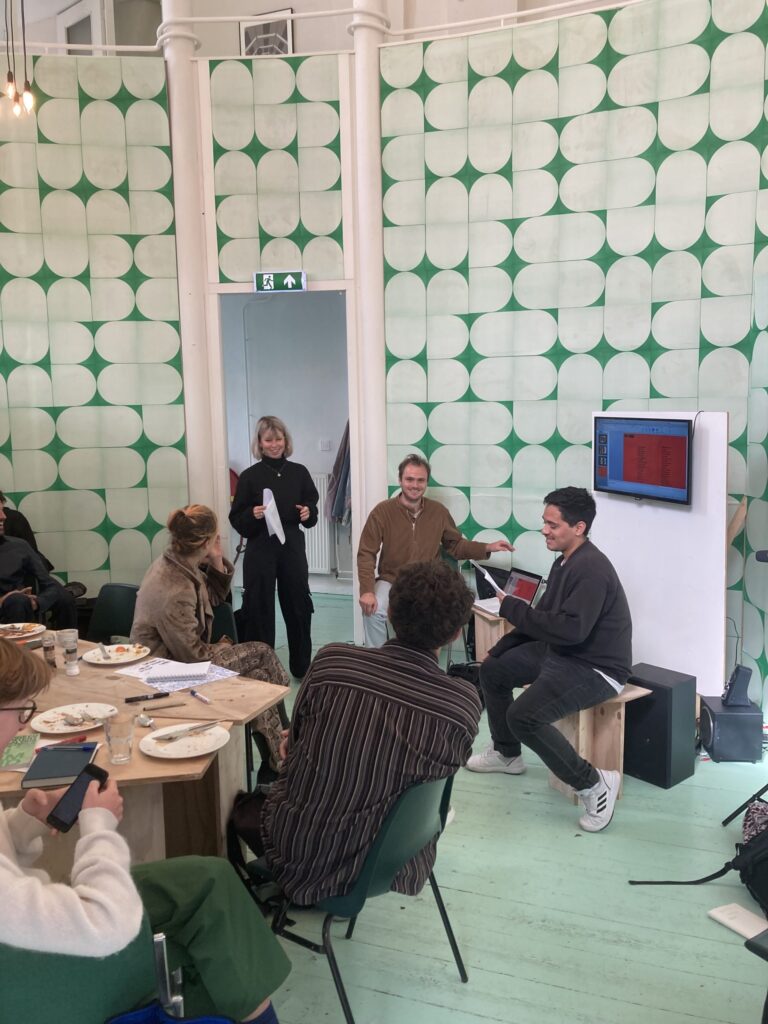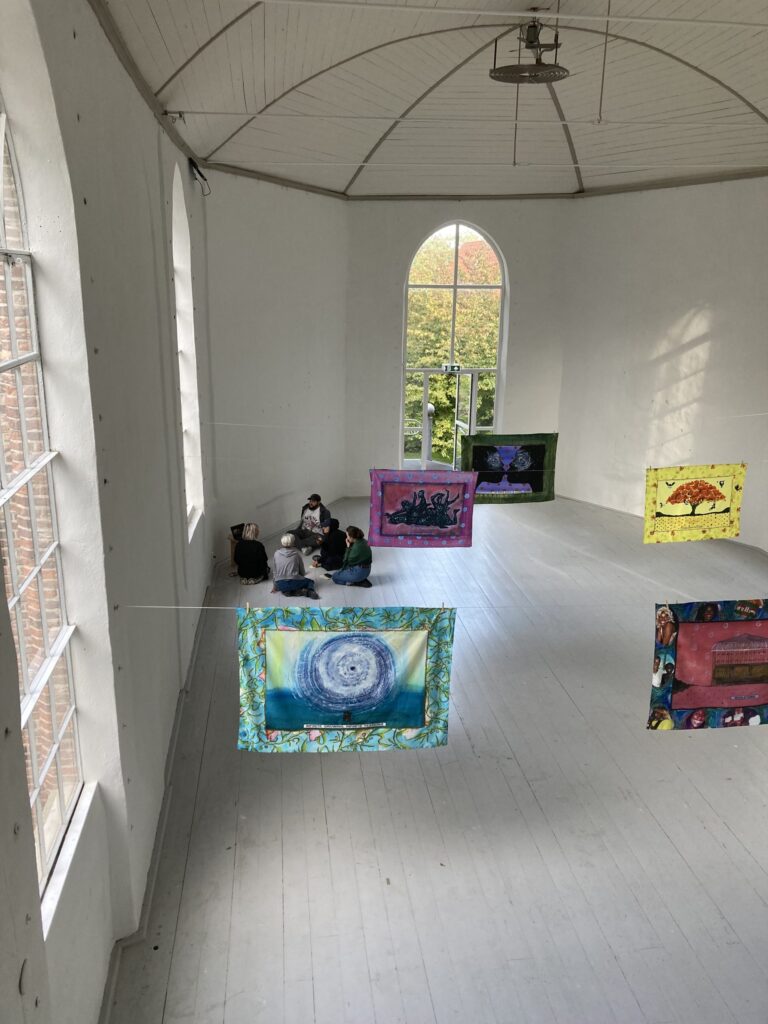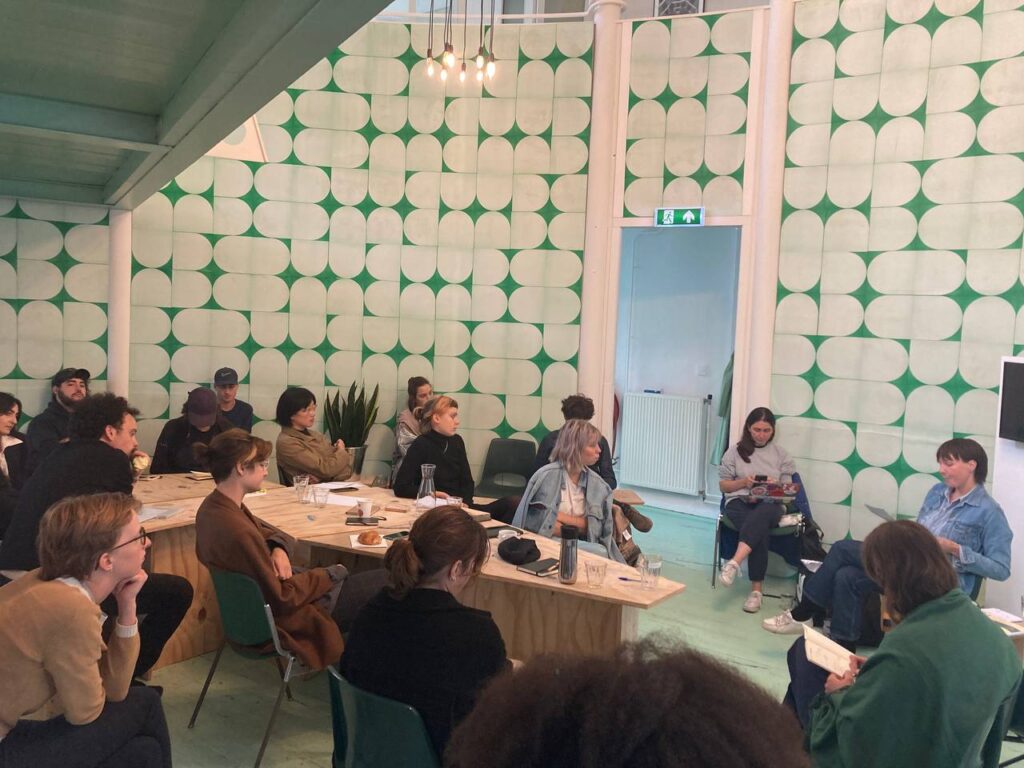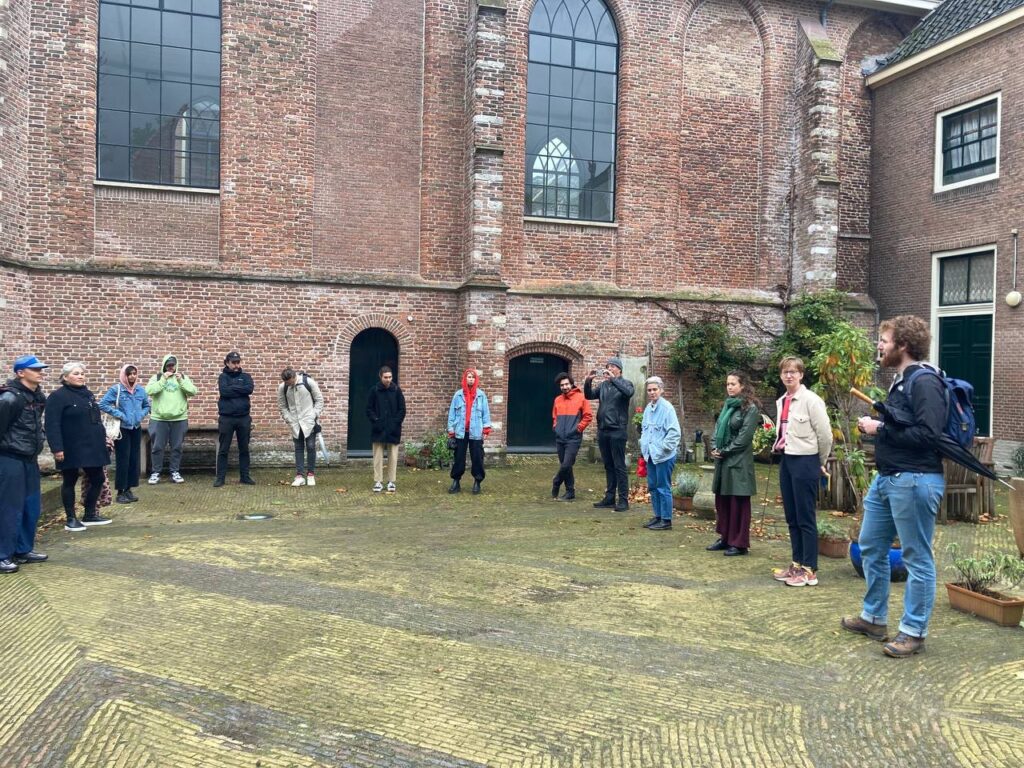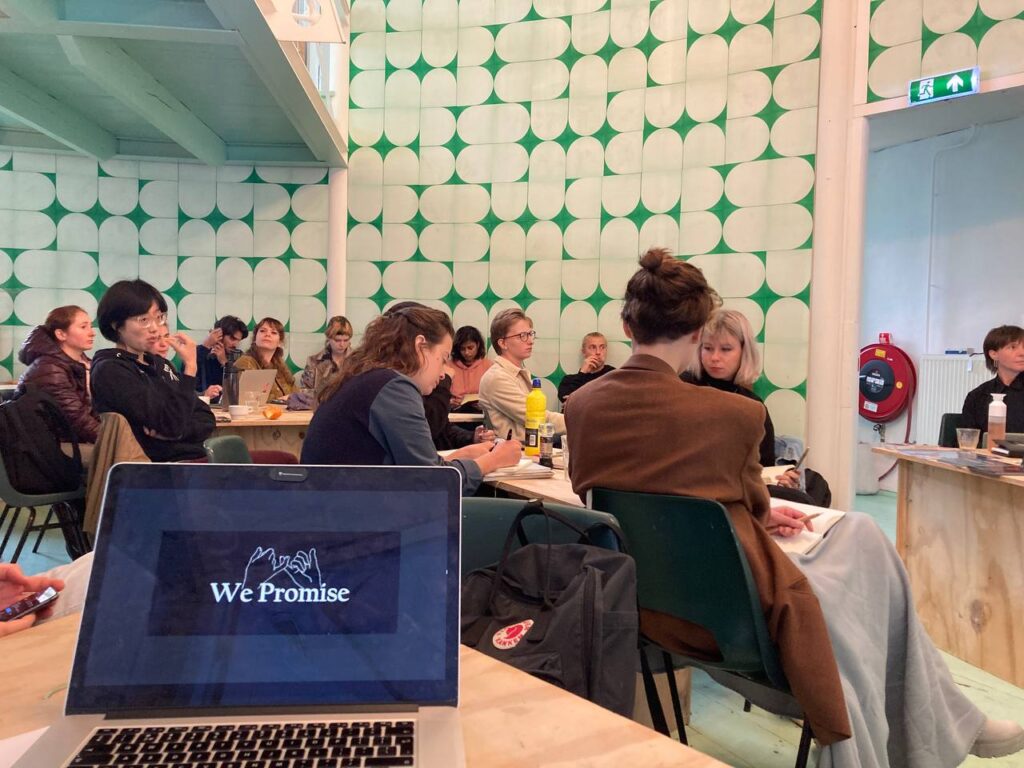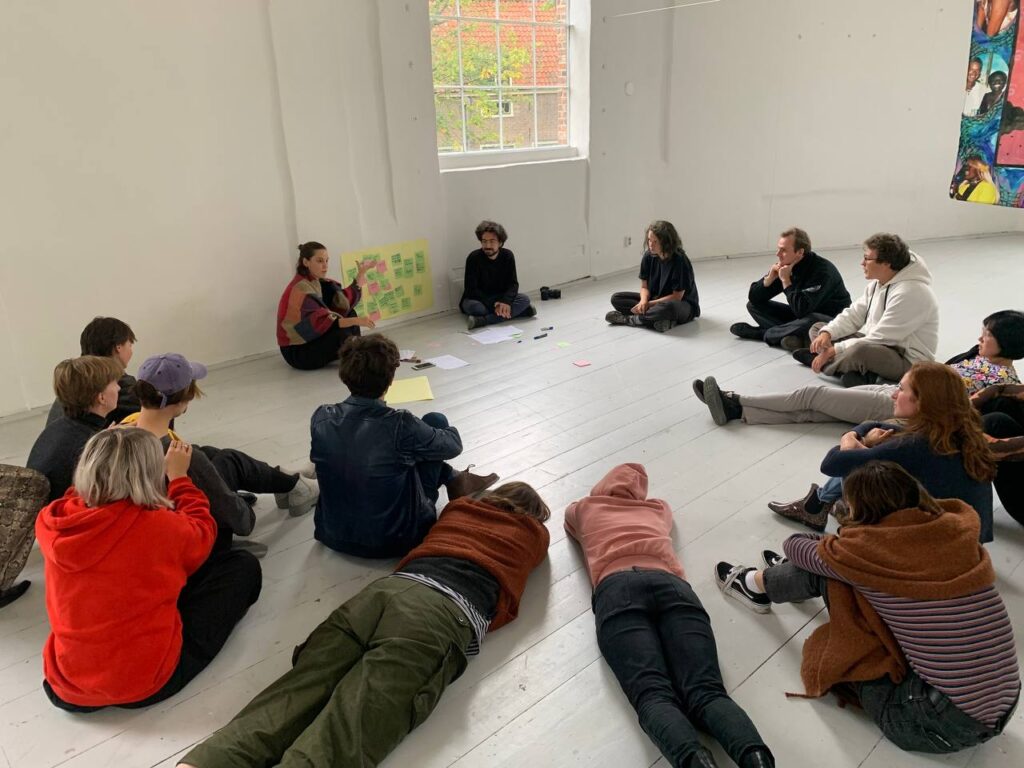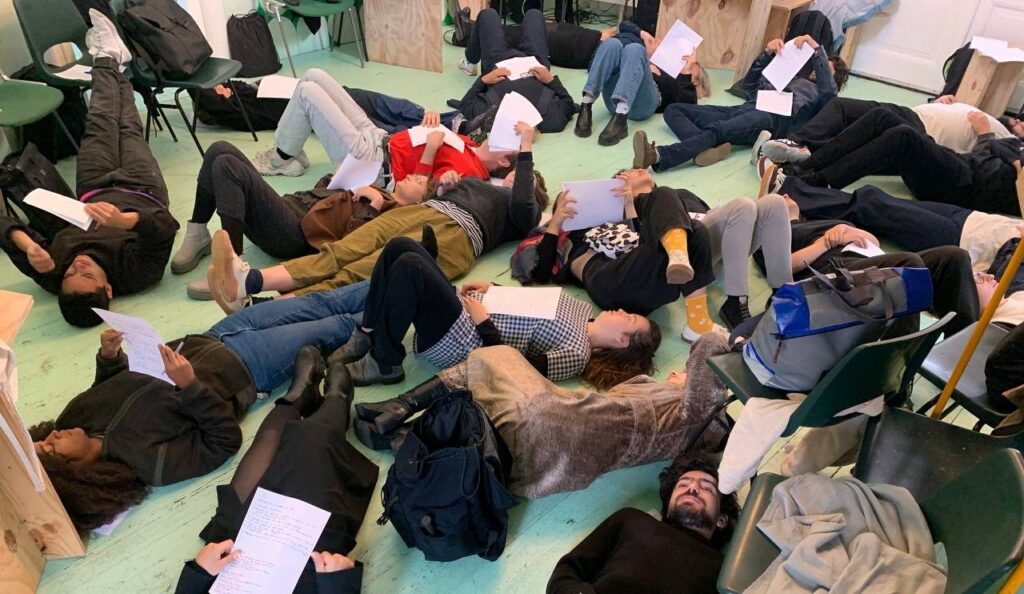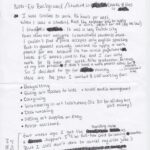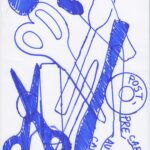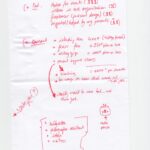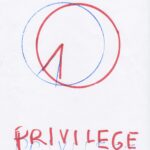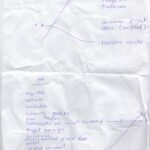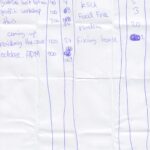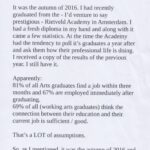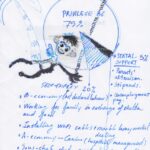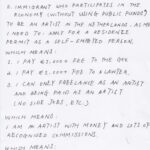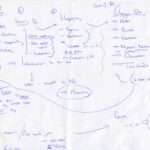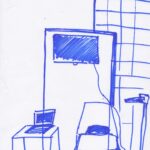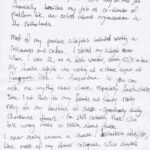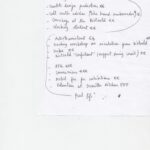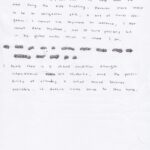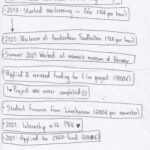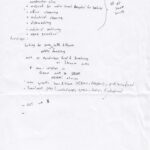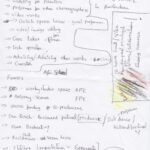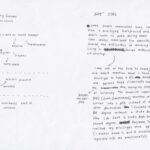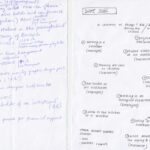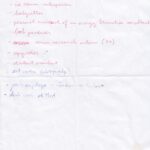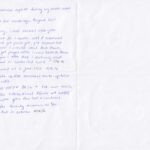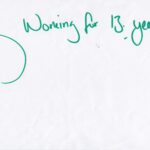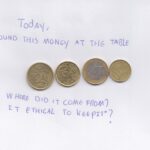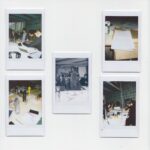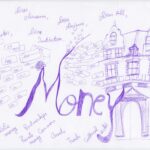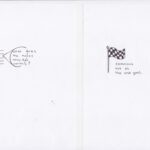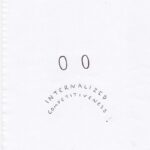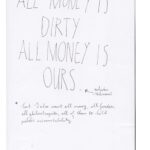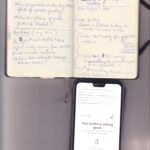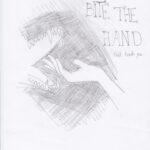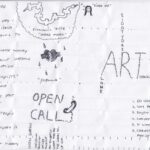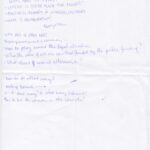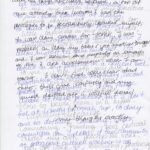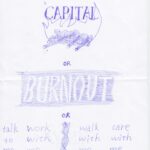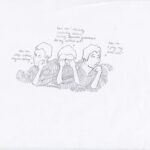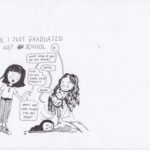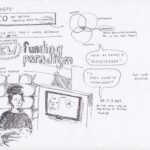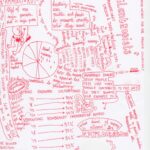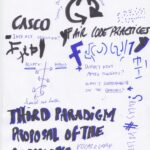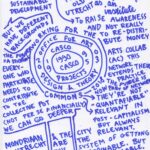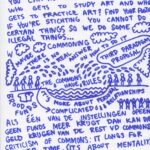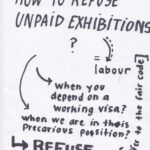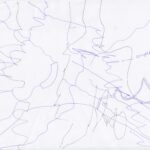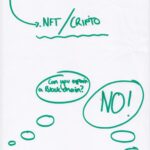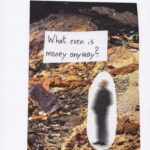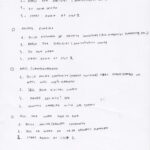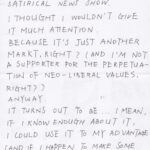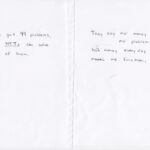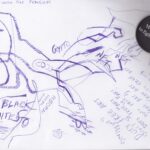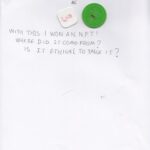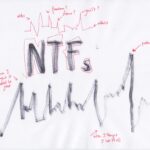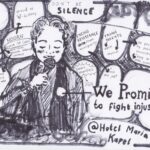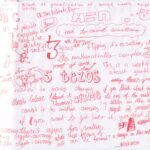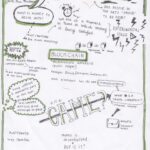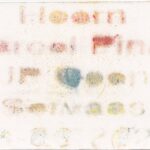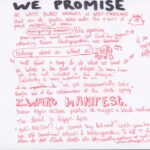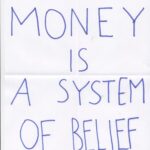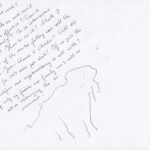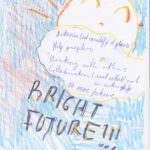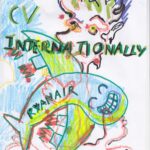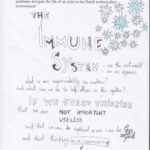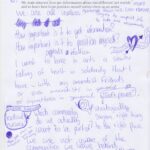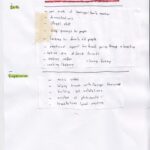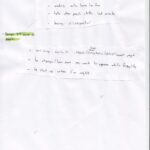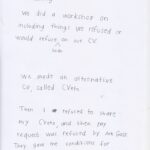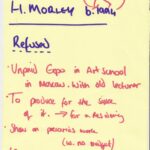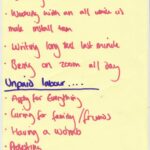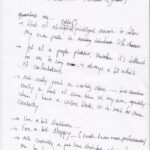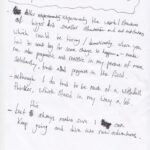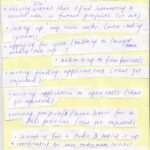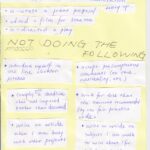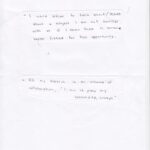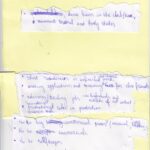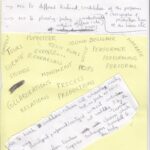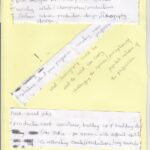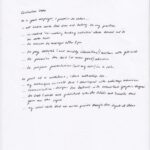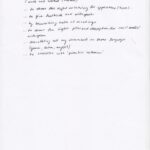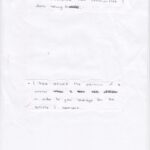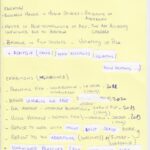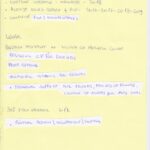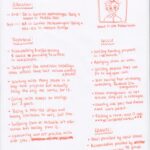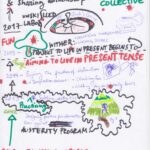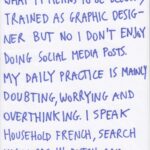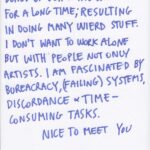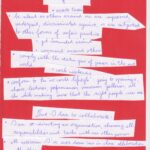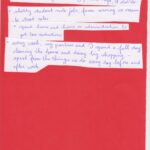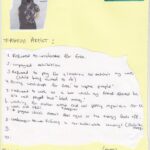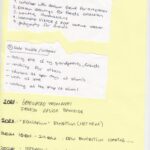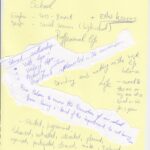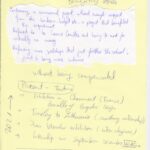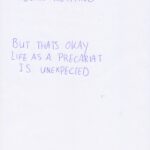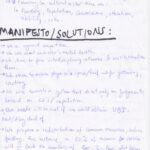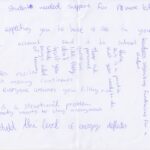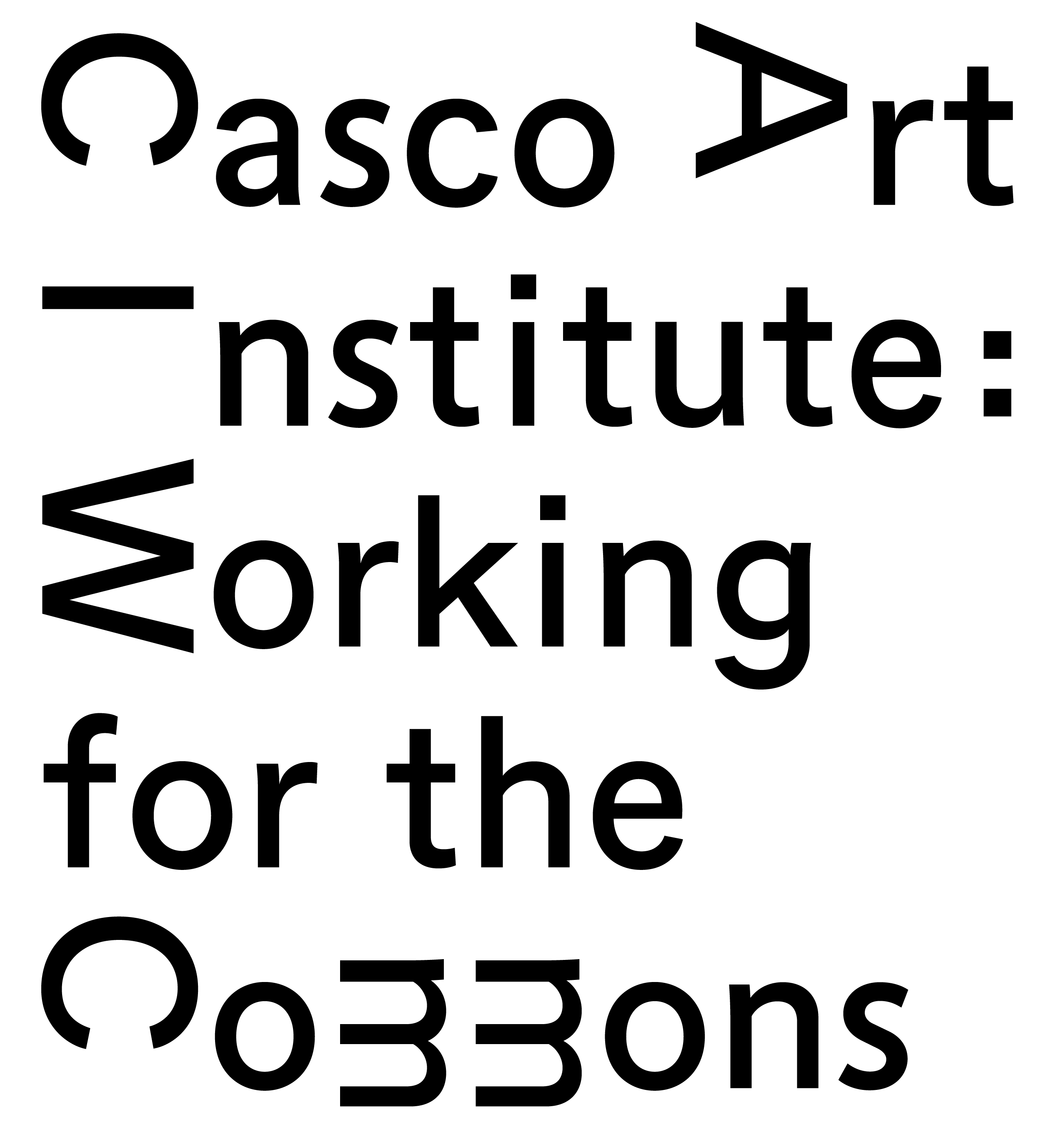From September 27th until October 1st, Platform BK, Hotel Maria Kapel, and the Institute of Network Cultures organized an autumn camp for young art workers. Read and see the results here.
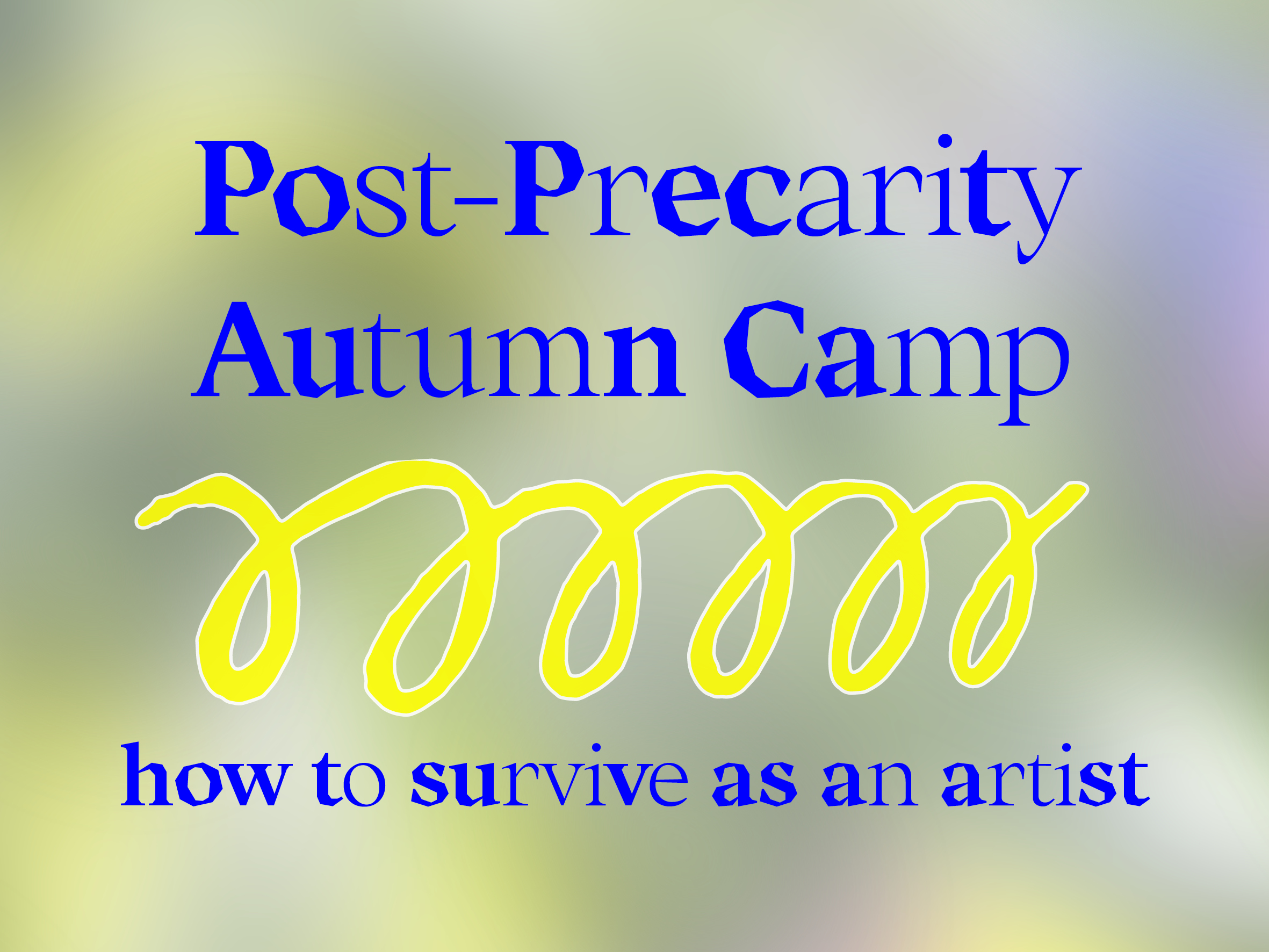
From September 27th until October 1st, the Institute of Network Cultures, Hotel Maria Kapel (Hoorn), and Platform BK organized an autumn camp for young art workers. Twenty recently graduated artists, designers, and theatre-makers were invited to five days of conversations, workshops, and communal activities. Each day, we addressed one important theme of working and living in the Dutch cultural sector: from working in the gig economy and money flows in the cultural sector, to experiments with crypto, staying happy and healthy, and durable self-organization. Below, you find impressions of each day in word and image.
Day 1: Working in the Gig Economy
09:30-10:00 – Arrival
10:00-10:30 – Welcome, tour through Hotel Maria Kapel by Tirza Kater and Annelien de Bruin (HMK)
10:30-12:30 – Workshop ‘Working in the Gig Economy’ by Alina Lupu and Silvio Lorusso
12:30-14:00 – Lunch, introduction in the artistic program of HMK
14:00-14:30 – Introduction to zine-making by Morgane Billuart (INC)
14:30-16:00 – Working together
16:00-17:00 – Mindfulness
The topic of the first day entailed working in the gig economy. Silvio Lorusso, designer, researcher, and author of Entreprecariat: Everyone is an Entrepreneur. Nobody is Safe. kicked off the day’s program with a lecture on the popular freelance platform Fiverr. Silvio analyzed how user interface design, as well as imagery on the platform, represent as well as shape labour relations and provide novel meanings of the role of the freelancer. Following that, artist and researcher (as well as gig-worker) Alina Lupu reflected on her working and artistic practice that merged her income-earning on the food delivery platform Deliveroo with her artistic work on labour and mobilization of union movements that she was a part of. As a part of her workshop, participants presented their various funding streams during the years, which posited the professional history as strangely intimate, enabling the participants to overcome the salary taboo – one of the main capitalist instruments of obedience. Tirza Kater presented a brief history and activities of Hotel Maria Kappel and the day concluded with a grounded Mindfulness workshop by Susan.
SIDE JOB HISTORY OF THE PARTICIPANTS, IN NO PARTICULAR ORDER (click to enlarge)
Day 2: Money Flows in the Cultural Sector
10:00-12:30 – Workshop by on commoning perspectives on public funding by Marianna Takou (Casco)
12:30-14:00 – Lunch, introduction to the Fair Practice Code (Platform BK)
14:00-15:00 – Discussion on private money in the arts with Timo Demollin
15:00-16:30 – Working together
16:30-18:00 – Collective film program, guided by PLOKTA
The second day of the Post-precarity Autumn Camp was marked by the discussion on the funding possibilities within the art sector, as well as the moral, ethical, and conceptual dilemmas that concern sourcing from both public and private finance pools. The day started with the workshop prepared by Marianna Takou from Casco Art Institute that introduced the perspective of the commons as applied in their practice of sourcing and (re)distributing funds for artistic practices. Topics touched upon during this workshop entailed the questions of traversing the binary of public and private funds, as well as problematizing the ongoing process of finding the right way to justly redistribute the funds to the collective. During the lunch break, Koen Bartijn from Platform BK gave a talk on the Fair Practice Code and the Richtlijn Kunstenaarshonorarium, which sparked a lively discussion on politics and pragmatics of underpaid or unpaid labour of young artists that exceeded into the smoking breaks and informal time of the day. After that, Timo Demolin presented his research that was conducted for the article The Philantropy Trap on the private money flows in the art sector in the Netherlands, that opened up the problems of navigating and positioning of both artists and art institutions within the corporate art-washing practices. The day concluded with the communal filmmaking workshop, facilitated by PLOKTA, that reflected on audiovisual representation of precarious labour, commonly sourced by all the participants of the workshop.
PARTICIPANTS’ REFLECTIONS ON THE DAY, IN NO PARTICULAR ORDER
Day 3: Experiments with Crypto
10:00-10:30 – Introduction by Geert Lovink (INC)
10:30-12:30 – Workshop on art and crypto by Rosa Menkman
12:30-14:00 – Lunch, conversation with Marisella de Cuba (We Promise Hoorn)
14:00-15:30 – Working together
15:30-18:00 – Art walk through Hoorn, guided by Martijn Aerts
On the third day of the Post-Precarity Autumn Camp, the participants had the chance to get an insight into alternative financial pathways of the digital art world. Geert Lovink of the Institute of Network Cultures gave an introduction to the research network MoneyLab that seeks to explore alternative revenue models, as well as to pose the ever-relevant questions of (re)defining the concept of money, especially in the context of the possibilities and limitations the digital monetary infrastructures provide. Succeeding that, artist and researcher Rosa Menkman delved into the complexities of cryptocurrencies and the digital artwork circulation as conceptualized through non-fungible tokens (NFTs). During this workshop, the participants gained insight into the curious structures of online art markets and possible strategies they might utilize for capitalizing off of them. The second part of the day was devoted to embedding the workshop into the social, historical, and artistic contexts of its locality. After lunch, Marisella de Cuba presented the activities of the organization We Promise that is devoted to challenging and overcoming colonial, racist, and discriminatory currents in Hoorn. The day was wrapped up with an art walk with Martijn Aerts which, despite the shifty and at times unfavorable weather, combined the playful with critical during the tour of the historical and artistic markers of the town.
PARTICIPANTS’ REFLECTIONS ON THE DAY, IN NO PARTICULAR ORDER
Day 4: Staying Happy and Healthy
10:00-12:30 – Workshop ‘Curriculum Veto’ by Art Goss
12:30-14:00 – Lunch, conversation with Wethouder Samir Bashara
14:00-15:30 – Roleplay ‘An Analogy: Art and the Immune System’ by The Long Tail of Art (Caradt)
15:30-17:00 – Guided tour through the West-Fries Museum
During the fourth day of Post-Precarity Autumn Camp, the notions of dependency, wasted time, refusal, and selflessness in the artistic working life have been explored through the workshops prepared by Art Goss and The Long Tail of Art (Caradt).
Curriculum Veto, a workshop facilitated by Art Goss, was aimed at rethinking the concept of CV (Curriculum Vitae) through all of the aspects of an artist’s working life that eventually don’t make the cut into the standardized narrative of professional self-presentation. Participants reflected on all of the things they refused to do in their career, as well as all the labour that didn’t fit into the CV form but was somehow necessary for their creative practice and development.
During lunch, participants discussed the policies and practices in the local arts and culture sector with the council member of the municipality of Hoorn, Samir Bashara. Following that, The Long Tail of Art held a workshop that explored the similarities between the art world and the immune system, which illuminated the importance of care, interdependency, and responsibility in collective artistic practices. The last activity of the day encompassed the guided visit to the West-Fries Museum.
PARTICIPANTS’ REFLECTIONS OF THE DAY, IN NO PARTICULAR ORDER
Dag 5: Durable Self-Organization
10:00-10:30 – Lecture ‘A Criticism of the Cultural Sector’ by Sara Strandvad (University of Groningen)
10:30-13:00 – Workshop on the artistic biotope by Koen Bartijn (Platform BK)
13:00-14:30 – Lunch
14:30-16:00 – Manifesto-writing
16:00-17:00 – Reflection
17:00-20:00 – Pizza!
The fifth and last day of Post-Precarity Autumn Camp served to recollect the knowledge of the previous four days and motivate participants to apply it to their strategies of durable self-organization. In the morning, Sara Malou Strandvad held a lecture ‘A Criticism of the Cultural Sector’ in which she provided a sociological perspective on the structures of cultural and creative work. She analyzed contemporary neoliberal organization models that shape creative work which is often based on individual responsibility and entrepreneurial capability and is as such left without structural support. Complementary to that, Koen Bartijn of Platform BK held a workshop based on the concept of artistic biotope by Pascal Gielen. The artistic biotope takes into account the living environment of the artist which consists of domestic, peer, market and civil spheres and which need to be in balance in order to provide for a sustainable artistic practice. Participants had a chance to reflect on their own personal artistic biotopes and identify the factors that both enable and disable them to carry on their work in a healthy and harmonious way. This reflection represented a base for demands and manifestos they worked together on that call for improving the working conditions in the art sector. The camp concluded with a communal reflection of the past week and possible further pathways this initiative might take.
LAST ROUND OF REFLECTIONS
Research context
The Post-Precarity Autumn Camp is the kick-off event for the new INC research strand Our Creative Reset, which explores new principles and strategies for cultural work, policy, and solidarity after Covid19. A programmatic text (Dutch only) about this subject was previously published as an INC Longform, which can be read here.
The results of the camp will be collected in a small zine, which will be freely distributed. Keep an eye out for the announcement!
Organization
The Post-Precarity Autumn Camp is organized by the Institute of Network Cultures, in collaboration with Hotel Maria Kapel and Platform BK. The project is supported by the Centre of Expertise for Creative Innovation (CoECI).

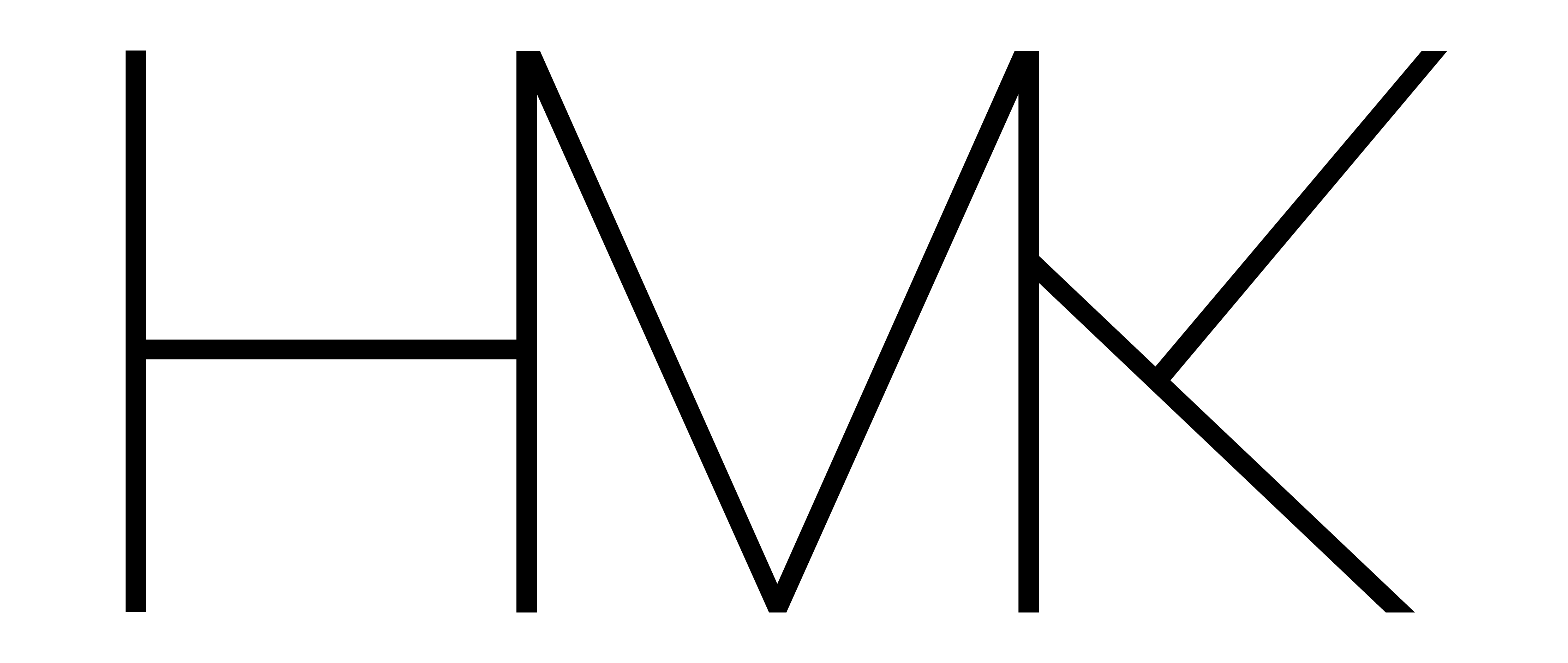
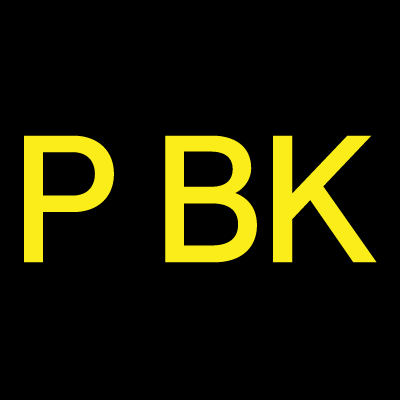
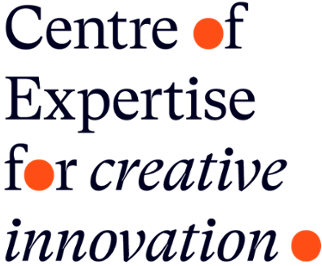
Project partners
Learning Community Critical Making & Learning Through Design
Sepp Eckenhaussen is a researcher at the Institute of Network Cultures. From 2020 until 2023, he and Koen Bartijn were the core team of Platform BK.
